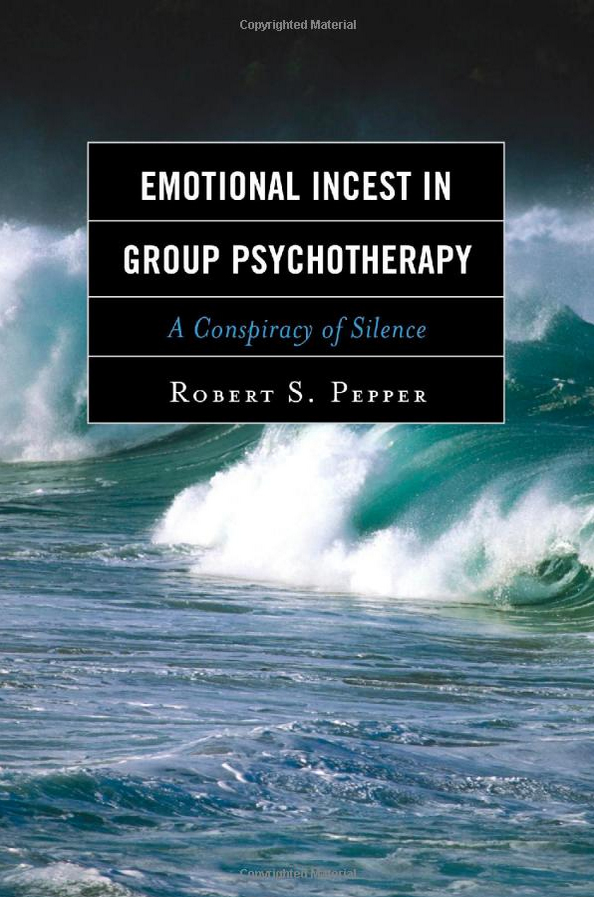 amazon.comclick here to purchase published by Rowman & Littlefield rowman.com
amazon.comclick here to purchase published by Rowman & Littlefield rowman.com
“This volume represents a culmination of Robert Pepper’s carefully and thoughtfully considered thesis about the potential abuses of power by those who practice, teach or supervise group psychotherapy. Masterfully crafting together his own professional experiences with a comprehensive review of the extant literature, he cogently and compellingly warns of the ensuing, harmful consequences when psychotherapists embark on the slippery slope of boundary violations in their work.”
—Les R. Greene, PhD, Yale University.
ABOUT THE BOOK
Emotional Incest in Group Psychotherapy: A Conspiracy of Silence is unique in the field of analytic group psychotherapy. Many books assume that the frame of therapy, the boundary between what is and isn’t therapy, is a given. This book treats the frame as a variable, showing that alterations to the frame have consequences. A moral dilemma exists when leaders choose to operate outside the ethics and wisdom of the field. The spoken directive to ‘say everything’ is obviated by the unspoken directive not to, and hence a conspiracy of silence is created. There is potential for iatrogenic treatment reactions, constituting an abuse of power. There are at least seven dangers of blurring the boundary between therapy and not therapy: 1. Breaches of confidentiality; 2. Looping; 3. The pass along effect; 4. Gaslighting; 5. Overstimulation; 6. ‘The emperor’s new clothes’ effect; and 7. Scapegoating. Emotional Incest in Group Psychotherapy illustrates the need to avoid these seven dangers and effectively help therapists work within the group setting. Professional organizations that provide the opportunity for members to openly address their concerns about blurred boundaries in group treatment can help to mitigate their negative effects.